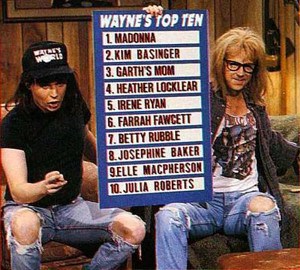We love every piece we run. There are no winners or losers. But all kidding aside, here are October’s winners.

- Kristin H. Macomber’s review of Playground: A Novel by Richard Powers (W.W. Norton & Company). “Playground’s swirling narrative centers around two young men: one brilliant and entitled, the other brilliant and penniless, both suffering from personal lives they’re anxious to escape. They meet in high school and bond over their mutual love of board games — first chess, later Chinese go — along with their parallel desire to outdo one another on all fronts. Over time, they shift from nonstop competition to pursuing their individual interests as they set off on wildly divergent academic paths: poetry and computer science. Once in college, the men befriend a young woman who shrewdly draws them out with a game that requires each to share his innermost truths and dreams.”
- Kitty Kelley’s review of Dorothy Parker in Hollywood by Gail Crowther (Gallery Books). “Parker loved the money but hated the place, which she described as ‘dull a domain as dots the globe.’ Yet she cherished her left-wing political circle of friends, including Ernest Hemingway, Dashiell Hammett, Lillian Hellman, Donald Ogden Stewart, Orson Welles, and Fredric March. She was arrested and fined for picketing the death sentences of Nicola Sacco and Bartolomeo Vanzetti, and was put on the FBI watchlist during the McCarthy era, when she was blacklisted as a communist in 1950. She never worked on another film but lived comfortably on royalties from four volumes of short stories, eight poetry collections, and three theatrical plays.”
- “An Interview with Paul Bleakley” by Cathy Alter. “I honestly had no idea about how deep the Mafia story ran in New Haven. I figured that there would be some presence — you couldn’t be located so close to New York without at least some action taking place. I am a reformed journalist…so I parked up at my local dive bar and just got talking with locals who were born and bred in the area. At some point, one of them casually mentioned a time back in the late 1980s when the FBI found a makeshift mob burial site with several bodies in a garage in a nearby town. It is the kind of thing that gives you whiplash, like, ‘Did I just hear what I think I heard?’ When I went home, I decided to start looking into it and soon went down the rabbit hole.”
- Peggy Kurkowski’s review of No Road Leading Back: An Improbable Escape from the Nazis and the Tangled Way We Tell the Story of the Holocaust by Chris Heath (Schocken). “Heath crisply chronicles the war years and the escape in part I of the book, employing parts II and III to recount the powerful postwar stories of those who escaped. It’s in these latter sections that he also excavates the delicate nature of storytelling, acknowledging how the ‘many different parts of the Ponar story have emerged and receded’ over time. From the first documented writings about Ponar — the authors of which assumed the tale would soon be amplified and spread — Heath relates the puzzling reality that instead confronted the survivors, of ‘how great a distance could be between speaking out and being heard.’”
- Randy Cepuch’s review of Blind Spots: When Medicine Gets It Wrong, and What It Means for Our Health by Marty Makary (Bloomsbury Publishing). “Raise your hand if you believe even one of these things: Infants should be kept away from peanuts. Hormone Replacement Therapy increases the odds of developing breast cancer. Antibiotics do no harm. Cholesterol levels are the primary factor when considering heart disease. Breakfast is the most important meal of the day. Ovarian cancer originates in the ovaries. Marijuana is harmless. Fevers are bad and should be reduced immediately. Early-detection tests for cancer are always godsends. (Okay, you can put your hand down now. But it was up, wasn’t it?)”
Subscribe to our newsletter here, and follow us on Instagram, X, Facebook, Pinterest, and Bluesky. Advertise with us here.
Believe in what we do? Support the nonprofit Independent!

